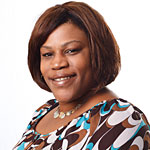 Juvenile justice system experts and reform advocates were among those who converged upon Miami last week for an annual conference hosted by the Open Society Institute (OSI). The, New York City-based private operating and grantmaking foundation focuses on criminal justice system reform.
Juvenile justice system experts and reform advocates were among those who converged upon Miami last week for an annual conference hosted by the Open Society Institute (OSI). The, New York City-based private operating and grantmaking foundation focuses on criminal justice system reform.
We asked a few of them “what single change would you make to the juvenile justice system?” Here’s what they had to say.

Jackson
Tarsha Jackson, an organizer with the Texas Reconciliation Project, the Texas Criminal Justice Coalition and the Houston chapter of the Association of Community Organizations for Reform Now.
“I think there needs to be more focus on prevention programs, but the biggest change I would make is to train all of the system stakeholders – the district attorneys, judges, court personnel – and train them on the definition of family involvement. There needs to be more emphasis on treating the juveniles as kids, not just as a case file. The courts need to involve the family more in the process. They should allow the family to make recommendations, for example, on the type of community service the child should do. Instead of having them just picking up trash or something meaningless, maybe they could have the family suggest some kind of community service that could have some impact. The family knows the child best and can suggest options that would allow the child to learn from their mistakes and grow; have them doing things that will help strengthen their character.”

Turral
Jessica Turall, Founder and Executive Director of Hand-In-Hand, a non-profit that provides mental health services, case management and academic services for young men tried as adults in Baltimore.
“We need to stop charging youth as adults. Once a young person gets an adult charge without the proper guidance, this has a long-term impact. In the future they will not be able to get financial aid for school or receive federal housing assistance or qualify for certain jobs. Putting a child in adult prison doesn’t deter crime or promote rehabilitation. All it does is create very angry youth that no one can work with. More people need to work with what I like to call ‘the young people behind the gate.’ It’s such a great opportunity to do this when they’re incarcerated. This is a captive group of young people who have nothing better to do for hours on end. We should create opportunities for them to learn and grow during that time so that they won’t return.”

Rapping
Jonathan Rapping, Associate Professor at Atlanta's John Marshall Law School and Founder and CEO of the Southern Public Defender Training Center, which trains public defenders across the southeaster United States.
“We need to make sure that we create a campaign to view juvenile defenders as part of the larger public defender community; they’re just as important as their counterparts in the adult system. We need to stop viewing them as the stepchild of the public defender community; a marginalized group. With this shift, the juvenile judges, legislative community and people with money will more likely understand the issues and begin funding opportunities to address them. Juvenile defenders need to be treated as an integral part of the process and should be provided with the support and resources that they deserve.”
Sonia Kumar, Director of the ACLU of Maryland's Girls in Juvenile Justice Project, which provides services and programs incarcerated girls

Kumar
“I’d force people in the system to get to know the kids that they have contact with. They need to ask them more questions about themselves; just talk to the kids more and listen to what they have to say in an authentic way. This should apply to every adult whose work touches kids in the system. It’s more a matter of a culture change. We need to stop checking boxes and forms and get to know the kids; ask them to tell you what they’re good at and what they like. We could all learn a lot from listening to them.”